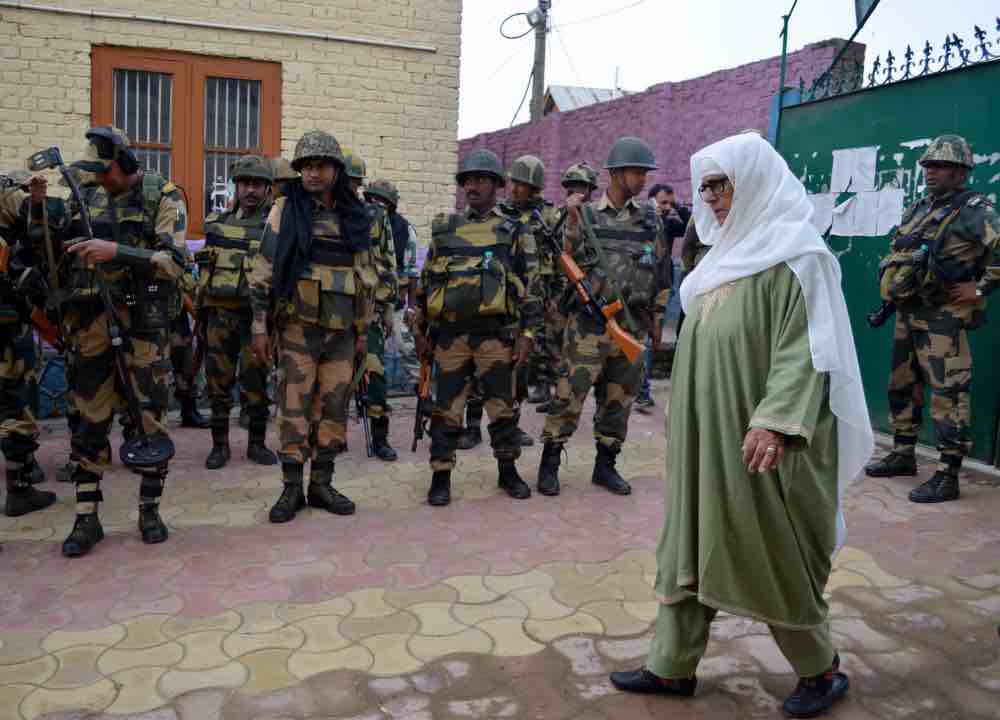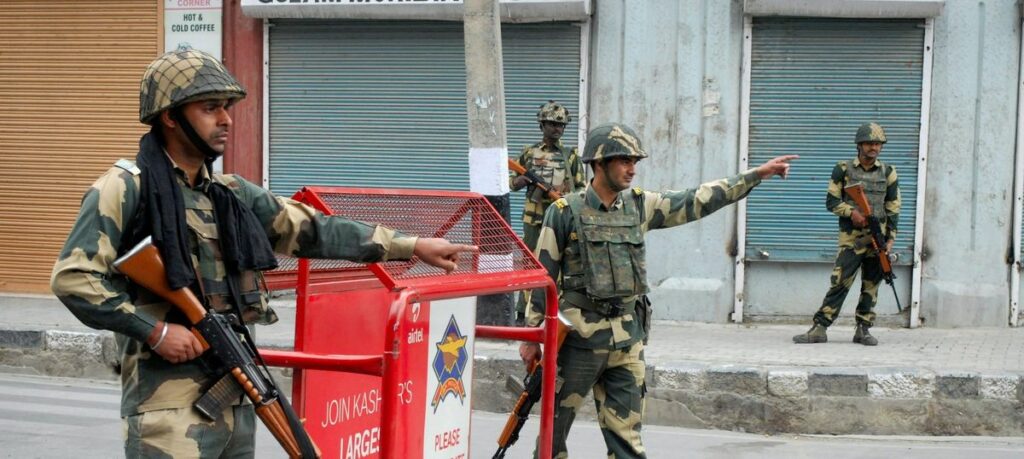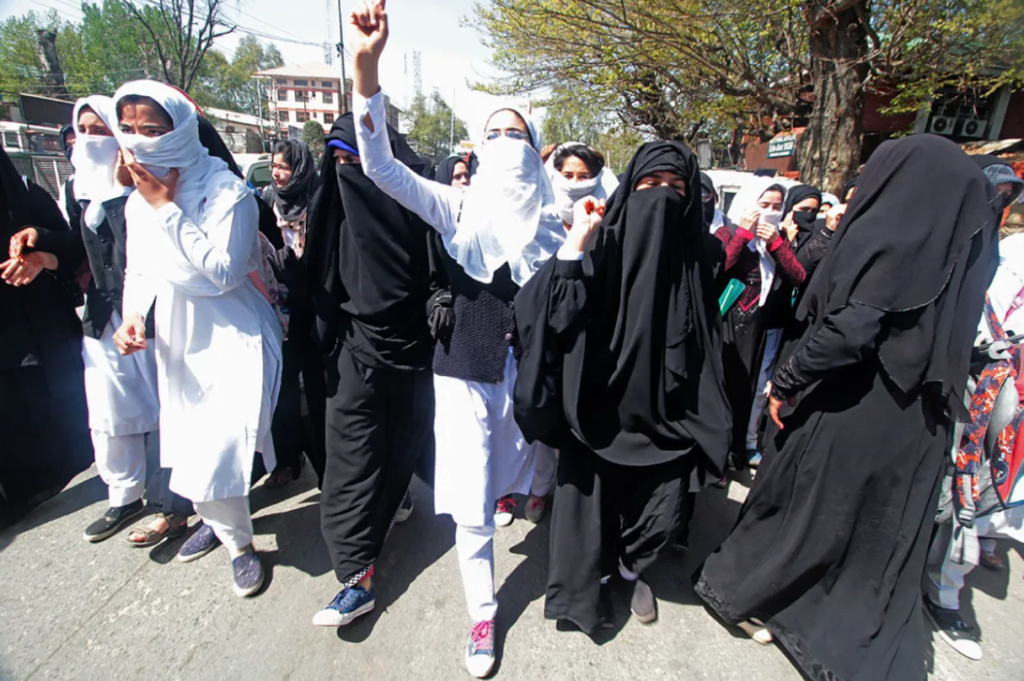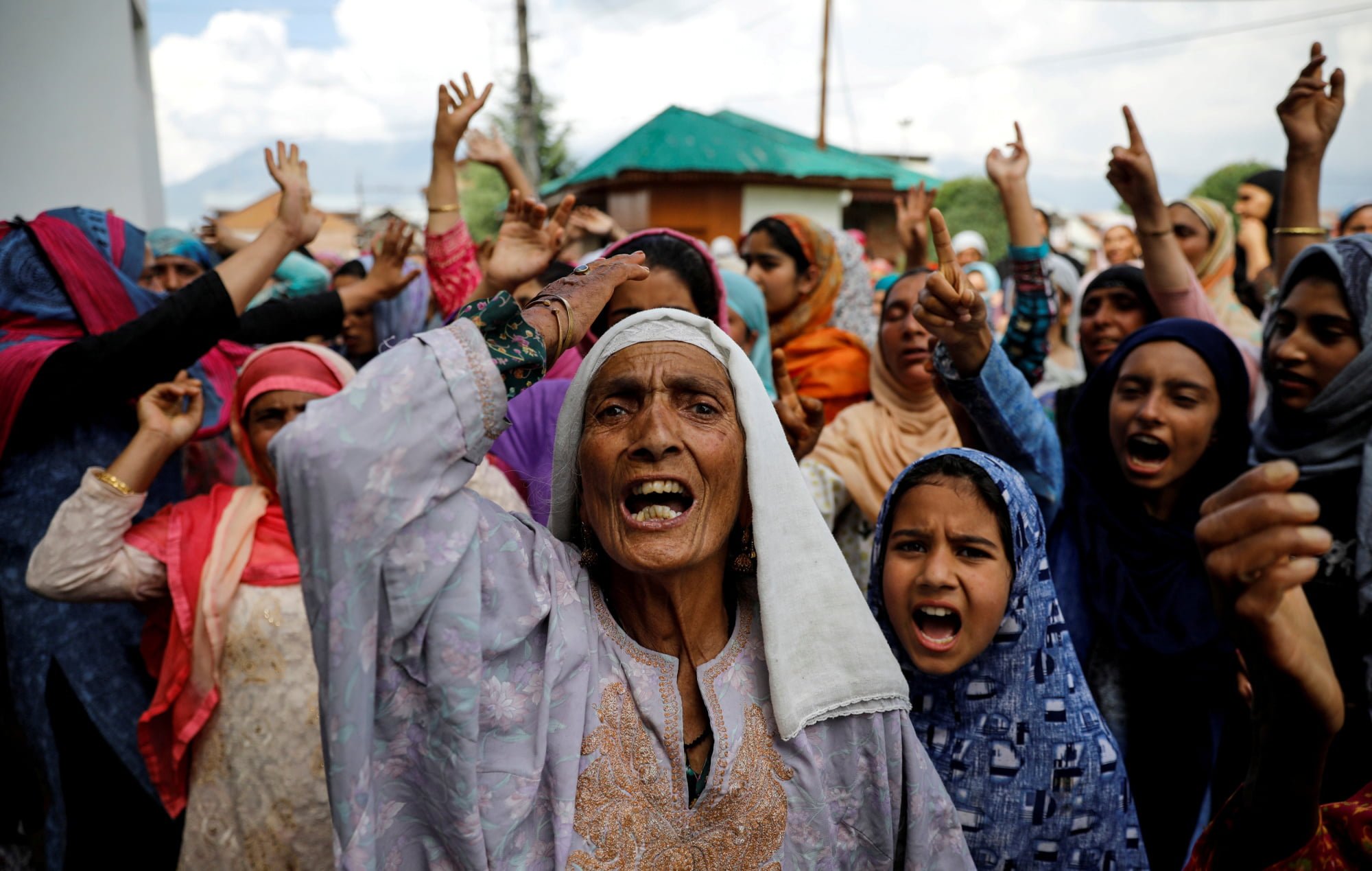‘I felt that we would die and no one would know about us,’ says Shaila*, 28 years old resident of Srinagar’s uptown area. ‘This thought of being trapped, with no connection to anyone outside, kept me awake, and gave me constant anxiety and tremors,’ she continued.
28-year-old Shaila grew up in Kashmir and saw the excesses of Kashmir’s armed conflict since the 90s, from cross-firings, encounters, crackdowns, and body frisking, to army raids. However, she spent some of her growing years in Delhi, pursuing her master’s degree. Later in the summer of 2019, when she returned home after completing her education, she was living the nightmare again.
Articles 370 and 35 A were repealed in the summer of 2019 followed by a prolonged curfew, restrictions on movement and freedom of expression and an extended communication blackout. The valley was dark and everything stood standstill. All political, social, civil and daily life was defunct.
‘I lost connection with my friends and relatives in the valley and outside the valley also. I sometimes feel I have seen only the worst in life due to this armed conflict,’ says Shaila with disappointment. Shaila was diagnosed with anxiety disorder and is still going through treatment.
“Nearly 1.8 million (45%) adults in the Kashmir Valley are experiencing symptoms of mental distress, with 41% exhibiting probable depression, 26% probable anxiety and 19% probable PTSD,” mentions a study and survey done by Médecins Sans Frontières (MSF) in collaboration with Kashmir University.
MSF also found “with highly prevalent common mental disorders and distress having continued to increase to reach epidemic levels among the traumatised population of Kashmir, with 37% of adult males and 50% of females suffering from probable depression; 21% of males and 36% of females from a probable anxiety related disorder and 18% men and 22% women suffering from probable PTSD.”
The study and survey have established that the ongoing conflict has caused and continues to exacerbate the mental health crisis in the valley with women bearing the major brunt.
The ongoing Conflict and its manifestations
Kashmir valley juxtaposed in the middle of India, Pakistan and China on three sides, is the most militarised region in the world today. The past more than 70 years of armed conflict with many human rights bodies, scholars and experts even calling it an occupation, has put an idebible mark on the valley’s inhabitants. Unemployment, disruptions in daily life, restraints on freedom of movement, assembly and political expression, stunting of human rights, torture of men and young boys and gender-based violence are some of the grave manifestations of the ongoing armed conflict.

In a 43-page report on UN Human rights on Kashmir, UNHCR, states “There is an urgent need to address past and ongoing human rights violations and abuses and deliver justice for all people in Kashmir, who for seven decades have suffered a conflict that has claimed or ruined numerous lives.“
Médecins Sans Frontières (MSF) research also points out that most people experienced trauma due to conflict, up to 93 per cent, followed by life trauma, which was 76 per cent. This data and trend are reflected in the World Health Organisation’s statement on mental health and conflict. The World Human Rights body mentions “WHO estimates published in The Lancet show there are more people living with mental disorders in areas affected by conflict than we previously thought – many more.”
Women in Kashmir are situated in a disadvantaged position due to the ongoing armed conflict. The already precarious condition of women and girls in the region has witnessed increased levels of gender-based violence ranging from rapes, mass rapes, abductions and kidnappings, forced marriages, and arbitrary killings through both state and non-state oppressive power structures. These experiences invariably put a drastic strain on the mental health of women resulting in anxiety disorders, PTSD, and various other mental health disorders.
Sleepless nights in Kashmir
Saba*, a 30-year-old married woman working in healthcare, recounts her childhood experiences of watching encounters taking place in her small village in Pulwama.

‘I think people who have grown in conflict can never come out of that trauma. It still haunts me. I don’t know how far it has impacted my mental health, but I’m sure it has given me a lot of sleepless nights and anxious days,’ says Saba, whose family migrated to Srinagar due to such a high presence of the army and continuous encounters taking place in her village.
‘I still remember the wild crackdowns in my area, wherein all men of the house were asked to get out and women and children left behind. The way security forces ransacked everything and even spilt the food and other items in search of something that I didn’t understand then,’ recounts Saba.
‘I remember vividly how the sky was lit with that bright light by security forces to make them see the night while looking for militants. I was scared of militants, gun shots, grenade sounds and violence and bloodshed. It still gives me fright and nightmares when I think about it even today,’ Saba mentions further.
Saiba Varma, an associate professor of anthropology at the University of California, in a Voice Of America report says, “The most basic building blocks of a healthy psyche — a sense of safety and security — are, and have been, under attack for decades in Kashmir.”
She also mentions, “the mental health crisis directly stems from social and political conditions in the region.”
The MSF findings mentioned, “It is clear that a higher proportion of women were classified as having all three mental disorders. This difference between the sexes was significant for all three disorders.”
I wish there were no army
‘I remember a young boy was fired in front of my eyes. He was killed on the spot. I will never forget that day,’ recounts Taslima*, a 27-year-old student. Taslima, a resident of Budgam district, mentions that she still has trauma from past experiences and feels anxious when she talks about those experiences.

‘I remember in 2019, my younger sister and I were sleeping in our room and suddenly, we heard people running in our yard. We looked down from the window and there was an army and police everywhere. I remember not letting my father go out or see through the window because I was scared for him.’ says Taslima in shock.
‘They even took my cousin who had a condition of epilepsy and beat him,’ recounts Taslima.
Taslima was diagnosed with OCD many years ago but discontinued taking any help. She agrees that she needs to seek mental health support soon and also mentions that she has some mental health distress due to her past experiences. Currently, she spends most of her time with her family and confides in them. However, many women are choosing to seek mental health support from professionals in the valley.
A report by NDTV highlights that, “Seventy per cent of distress calls seeking mental health care in Jammu and Kashmir are women, according to TeleManas centre, a digital platform for mental health.”
Kashmiri women have been dealing with trauma and risks due to their unique positionality in the region. They are facing excesses through conflict which sometimes intersects with patriarchy, giving rise to various hindrances targeting their agency and autonomy. Due to the absence of men who have been either taken by police or army into custody or men killed in encounters, women have to take various roles in society that they are not sometimes prepared for. This puts an immense strain on women psychologically. For instance, Kashmir’s half-widows are in a unique dilemma between grief and social responsibility, which puts their psychological health at stake.
Half widows are women whose husbands have been victims of forced disappearances in the valley and there are women whose sons were targeted under forced disappearances and encounters, who still bear the traumas and other mental health ailments.
According to research, “The half-widows do not get to know about their husbands, whether they are dead or alive and live in the hope that one day they may return home. However, they continue to live their lives, seeking livelihoods, supporting their children financially and emotionally. The absence of any assured rehabilitation measures renders them emotionally bruised, psychologically traumatised, economically disturbed and even physically crippled. These half-widows continue to suffer in silence, the lack of a structured database is painfully evident as no thorough record has been maintained or comprehensive survey conducted to measure the problem realistically.”
There is still a considerable lack of research into the mental health and psychological implications the condition of being half widow would bring.
Women in Kashmir have been at the forefront of resistance and also have faced the gendered violence in the valley, putting their mental health at grave risk. Some are now actively taking up their mental health conditions with health care providers and psychiatrists, yet some remain obvious.
Taslima like many other women wishes to walk about her neighbourhood without facing hundreds of army men’s gaze. ‘I like to go for walks but it becomes difficult sometimes. I wish there were no army.’
*names have been changed to protect the identities.
About the author(s)
Shahinda is a multimedia journalist with an experience of more than five years. She has an interest in covering politics, gender, conflict, and gender-based violence/crime. In addition, she has experience in reporting, photography and documentary filmmaking. She has done her Masters in Mass Communication from AJK MCRC Jamia Millia Islamia, New Delhi.







This article just shows your inherent hate towards the state of India, calling the army a perpetrator of mass rape is just blatantly horrendous to say the least. You were not objective in analysing the actual problems in Kashmir and how regional conflict is fueled by the locals themselves. Kindly amend the articles… I know it won’t happen..